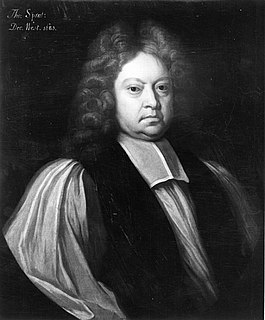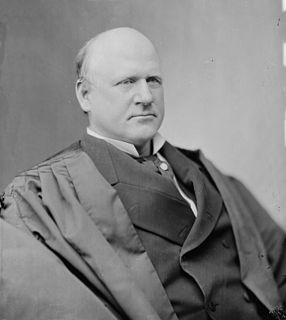A Quote by Stefan Zweig
But the creative person is subject to a different, higher law than mere national law. Whoever has to create a work, whoever has tobring about a discovery or deed which will further the cause of all of humanity, no longer has his home in his native land but rather in his work.
Related Quotes
They have never affirm'd any thing, concerning the cause, till the trial was past: whereas, to do it before, is a most venomous thing in the making of Sciences: for whoever has fix'd on his Cause, before he has experimented; can hardly avoid fitting his Experiment, and his Observations, to his Own Cause, which he had before imagin'd; rather than the Cause to the Truth of the Experiment itself. Referring to experiments of the Aristotelian mode, whereby a preconceived truth would be illustrated merely to convince people of the validity of the original thought.
Law is justice. And it is under the law of justice - under the reign of right; under the influence of liberty, safety, stability, and responsibility - that every person will attain his real worth and the true dignity of his being. It is only under this law of justice that mankind will achieve - slowly, no doubt, but certainly - God's design for the orderly and peaceful progress of humanity.
The system is not intended as a substitute for private savings, pension plans, and insurance protection. It is, rather, intended as the foundation upon which these other forms of protection can be soundly built. Thus, the individual's own work, his planning and his thrift will bring him a higher standard of living upon his retirement, or his family a higher standard of living in the event of his death, than would otherwise be the case. Hence the system both encourages thrift and self-reliance, and helps to prevent destitution in our national life.
It is a mistake to talk about the artist looking for his subject. In fact, the subject grows within him like a fruit and begins to demand expression. It is like childbirth. The poet has nothing to be proud of. He is not master of the situation, but a servant. Creative work is his only possible form of existence, and his every work is like a deed he has no power to annul. For him to be aware that the sequence of such deeds is due and ripe, that it lies in the very nature of things, he has to have faith in the idea; for only faith interlocks the system of images for which read system of life.
Collect all the facts that can be collected about the life of Racine and you will never learn from them the art of his verse. All criticism is dominated by the outworn theory that the man is the cause of the work as in the eyes of the law the criminal is the cause of the crime. Far rather are they both the effects.
Lower the Law and you dim the light by which man perceives his guilt; this is a very serious loss to the sinner rather than a gain; for it lessens the likelihood of his conviction and conversion. I say you have deprived the gospel of its ablest auxiliary [its most powerful weapon] when you have set aside the Law. You have taken away from it the schoolmaster that is to bring men to Christ . . . They will never accept grace till they tremble before a just and holy Law. Therefore the Law serves a most necessary purpose, and it must not be removed from its place.
How so? Briefly, apart from the gospel and outside of Christ, the law is my enemy and condemns me. Why? Because God is my enemy and condemns me. But with the gospel and in Christ, united to him by faith, the law is no longer my enemy but my friend. Why? Because now God is no longer my enemy but my friend, and the law, his will—the law in its moral core, as reflective of his character and of concerns eternally inherent in his own person and so of what pleases him—is now my friendly guide for life in fellowship with God.
Good work is no done by "humble" men. It is one of the first duties of a professor, for example, in any subject, to exaggerate a little both the importance of his subject and his own importance in it. A man who is always asking "Is what I do worth while?" and "Am I the right person to do it?" will always be ineffective himself and a discouragement to others. He must shut his eyes a little and think a little more of his subject and himself than they deserve. This is not too difficult: it is harder not to make his subject and himself ridiculous by shutting his eyes too tightly.
The rule of law does not guarantee freedom, since general law as well as personal edicts can be tyrannical. But increasing reliance on the rule of law clearly played a major role in transforming Western society from a world in which the ordinary citizen was literally subject to the arbitrary will of his master to a world in which the ordinary citizen could regard himself as his own master
Whoever accepts the higher mission of art and comes nearer and nearer to it through his creative activity, will then go on from art to the Spirit deep within his own self... The philosophic search for enlightenment and the artist's search for perfection of work can meet and unite. Art can be a path to spiritual enlightenment but not to complete and lasting enlightenment. It can be born out of, and can give birth itself to, only Glimpses. For art is a search for beauty, which by itself is not enough. Beauty must be supported by virtue and both require wisdom to guide them.
Whoever is truly humbled — will not be easily angry, nor harsh or critical of others. He will be compassionate and tender to the infirmities of his fellow-sinners, knowing that if there is a difference — it is grace alone which has made it! He knows that he has the seeds of every evil in his own heart. And under all trials and afflictions — he will look to the hand of the Lord, and lay his mouth in the dust, acknowledging that he suffers much less than his iniquities have deserved.







































